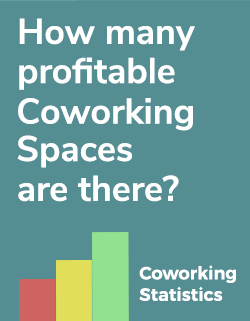With around 600 hits per day, the coworking wiki has proven to be an invaluable resource for coworking enthusiasts worldwide. The resources shared on the platform have not only helped to build spaces, but also communities within them, generating traffic and boosting membership numbers.
Toby Morning from Citizen Space, for example, praises the wiki’s value. “(The wiki) sends us hot leads for membership inquiries and endless drop ins,” he wrote. “From the 80-100 referrals we get per month, we easily save $250-$300 per month in CPC fees.” He then goes on to say, however, “now imagine when it’s working optimally.”
Unfortunately, this is the case. As the coworking scene has grown and more content has been uploaded, the system behind the wiki is lagging, failing to deal with the volume of content and questions uploaded to the site each week.
Presently, the wiki is run by two primary volunteers, Jacob Sayles of Office Nomads, and Will Bennis of Locus Workspace, who approve or deny content added by users. With the increasing number of users, this is becoming more and more challenging.
Sporadically, others have stepped in to help clean up a page or two, but this approach lacks consistency, and establishing best practices is an ongoing challenge. In addition, orchestrating a handover when volunteers opt-out is difficult. As the platform grows, a lack of transitional period may signal the collapse of the whole project.
In response to these problems, Jacob and Will have launched the Upgrade Wiki Project, calling on the coworking community, who have so greatly benefited from the resource, to help make it sustainable and more useful.
“(Will and I) are really trying to move beyond a volunteer based system,” said Jacob. “As more and more coworking spaces are becoming successful, the community is presented with a real opportunity to implement a new system, before the resource falls into a state of disrepair.”
By replacing the volunteer based system, however, they were adamant not to create a commercial venture. Instead, the wiki upgrade will remodel the system on which the platform functions. Rather than volunteers, coworking space operators worldwide will be able to donate their staff members’ time - around five hours per week for one year - to site maintenance and user support.
This system means that after the initial funding rounds, no ongoing funds will be needed to maintain the resource, while the one-year commitment helps to establish best practices and smooth handovers.
“The real innovation here is less software and more about trying to implement a system which is made up of more than just volunteers, but at the same time resisting that it becomes a commercial entity,” Jacob said. “It will still be open, it will still be non-commercial, but we’re having a team of individuals who more actively cultivate it, clean it up and answer questions.”
As well as management optimization, the upgrade will include fundamental changes to the platform. Most notably, a new map search function will be introduced, allowing coworking operators to list their spaces with updates from their own websites integrated automatically. The organization, layout, and usability of the resource will also be improved, which will in turn increase and encourage collaboration between spaces, including wider use of the Coworking Visa.
Because the team will be made up of members of the coworking community, they will be able to interact with users, and will therefore transform the wiki into another communication channel, supplementing the coworking Google group.
Presently, the upgrade project is in its first round of funding, with a target of between US $25-35,000. These costs will go towards reimbursing the many hours that the current team are expending on putting the new system in place. Following its implementation, no further funding will be necessary to maintain the resource.
“Getting back to the origins of the project, all of the lessons that I’m trying to apply here are lessons that I’ve learned from running my coworking space. We don’t just have a building, and have people come in and do whatever they want. We have a little bit of structure. But, at the same time, we try to make the structure light so that we don’t get in the way. Sometimes it’s just a matter of saying “good morning”, and that starts a conversation. Sometimes it’s just pushing in chairs. But it means that the place stays tidy, and the Nomad community can thrive. I’m trying to apply that same structure to this large scale project. We’re all working on it together, but applying the minimum amount of structure needed to make sure it stays tight. The collaboration still happens.”
At present, around the coworking wiki attracts on average 600 visits daily. With a little amount of effort, the coworking community has created an invaluable resource. Imagine the potential.
:::
To support the Wiki Upgrade project, visit this website.








